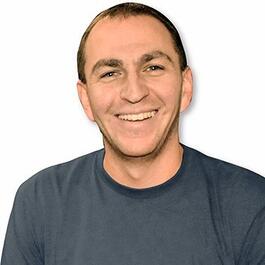
The Paradox of FI -- with Jonathan Mendonsa and Brad Barrett of Choose FI
#160: When Jonathan Mendonsa was 18, he researched which college degrees lead to the highest income. Pharmacy was near the top of the list of high-paying degrees, so Jonathan decided to become a pharmacist. He wasn't motivated by passion or calling. His decision was purely tactical. He wanted to make money. He spent four years in college, followed by another four years of graduate school. By age 28, he held a Doctorate in Pharmacy and an astounding $168,000 in debt. This debt burden might have been bearable if Jonathan loved his chosen profession. For people who love their fields, tuition is the price of being able to enjoy a lifetime of work they love. Unfortunately, that wasn't Jonathan's story. He never held a passion for pharmacy; he viewed it purely as a means to an end. Perhaps it wasn't surprising, then, that shortly after becoming a pharmacist, he realized that this wasn't what he wanted to do with his life. He wanted to change careers. He wanted to pursue more meaningful, fun, interesting work. He spent the next four years repaying his student debt. And finally, at age 32, he brought his net worth up to zero. _____ Brad Barrett wasn't thinking about income when he chose his profession. He had received acceptance letters to some Ivy League schools, but he wanted to graduate from college debt-free, so he enrolled at the University of Richmond, which gave him a partial scholarship. While studying there, Brad encountered an accounting professor who challenged him and his classmates in the best possible ways. Brad felt inspired to major in accounting. His decision didn't come from a rigorous analysis of lifetime income potential. He wasn't scrutinizing labor statistics spreadsheets. He was simply following a route that he found fascinating. After he received his undergraduate degree, Brad decided not to enroll in any further education. Instead, he started working for one of the Big Five accounting firms, with a starting salary in the low $40,000's. He and his future wife both lived at home with their parents for the first few years of their professional life, which allowed each of them to save dramatic amounts. Brad saved more than 90 percent of his after-tax income. Perhaps it's not surprising that the couple, who now have two children, are financially independent. ____ Both Jonathan and Brad are college-educated professionals in their thirties. They both live in Richmond, Virginia. They're both married with children (Jonathan has a son; Brad has two daughters). Yet their stories could not be more different. What can we learn about careers, work, income, spending, and financial independence from their life experiences? Find out in today's podcast interview with Jonathan and Brad, the co-hosts of the ChooseFI podcast. Learn more about your ad choices. Visit podcastchoices.com/adchoices
From "Afford Anything"





Comments
Add comment Feedback